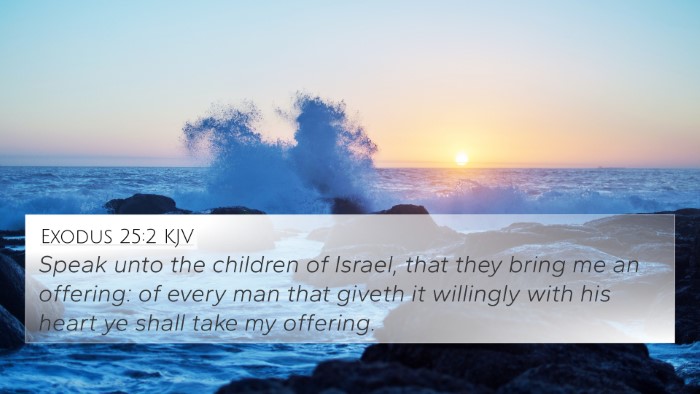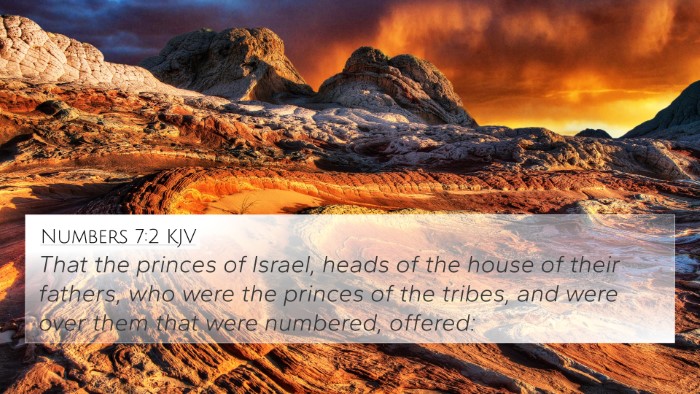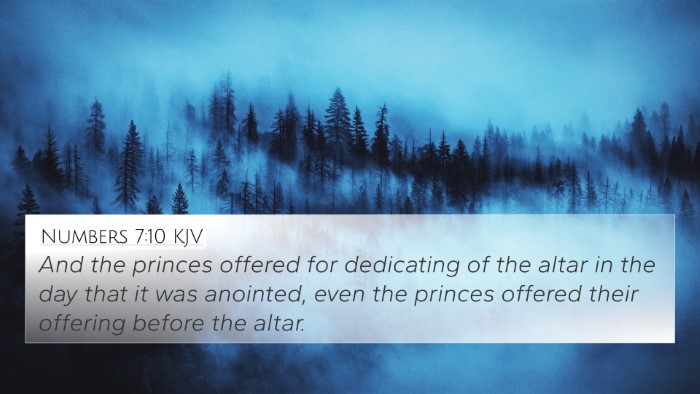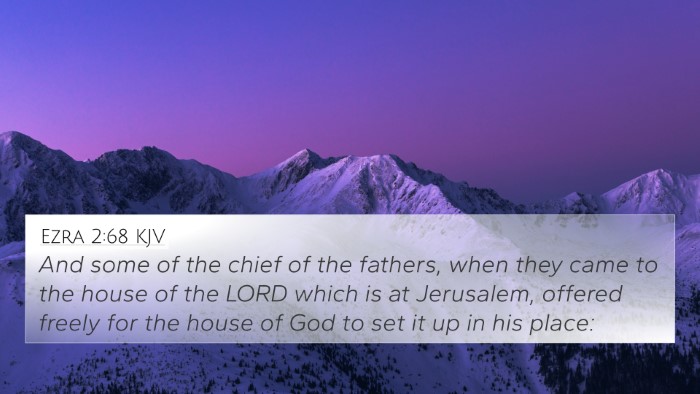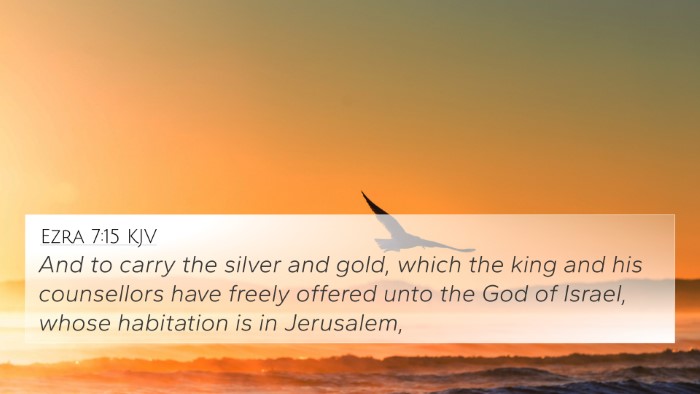Understanding 1 Chronicles 29:5
This verse states:
"The gold for the things of gold, and the silver for the things of silver, and for all manner of work to be made by the hands of artisans. And who then is willing to consecrate his service this day unto the Lord?"
Contextual Overview
In this chapter, King David is preparing for the construction of the temple in Jerusalem, which his son Solomon will build. Gathering resources for this monumental task reveals David's heart and intentions as a leader.
Key Themes and Interpretations
- The Principle of Giving: David calls on the people to voluntarily offer their resources. The emphasis on the willingness of the heart highlights a key biblical principle concerning giving.
- Consecration for Service: The plea for consecration indicates that service to God requires commitment and dedication. This calls on believers to reflect on their personal involvement in God's work.
- Divine Provision: The designation of gold and silver for specific sacred purposes underscores God’s providential role in supplying needs for His work.
Commentary Insights
Matthew Henry: He emphasizes the importance of David's call to the people, noting that willing offerings are more valued than mere obligation. This highlights the spiritual activity of worship and the joy in contributing to God's work.
Albert Barnes: Barnes points out the organizational aspect of David’s plea, as he provides a distinction between the materials for different tasks, which reflects God’s order in creation. This calls the faithful to bring their very best to the Lord.
Adam Clarke: Clarke mentions the aspect of personal investment in God’s work, interpreting David’s invitation as a challenge to be actively involved in serving the Lord with one's resources, talents, and time.
Cross-References and Thematic Connections
This verse connects with several biblical themes and verses:
- Exodus 35:5: Calls for generous contributions of resources from the Israelites for the tabernacle.
- 2 Corinthians 9:7: Highlights that God loves a cheerful giver, reinforcing the theme of willing contributions.
- 1 Peter 4:10: Suggests that each should use their spiritual gifts to serve others, paralleling the call to service in 1 Chronicles 29:5.
- Malachi 3:10: Encourages bringing the full tithe into the storehouse, relating to the principles of providing for God’s work.
- Psalm 110:3: Whose people offer themselves willingly, reflecting the voluntary service mentioned in Chronicles.
- Matthew 6:21: Where your treasure is, there your heart will be also, linking to the theme of valuing God's work.
- Acts 4:32-37: The early church exemplifies communal giving and sharing for the mutual benefit of God’s mission.
Conclusion
In summary, 1 Chronicles 29:5 serves as a vital scripture that not only shows King David's leadership and heart for God's house but also invites believers today to engage in sacrificial giving and active service. The quoted verse encourages reflection on individual involvement in God’s work, drawing an enduring connection to the principles of commitment, generosity, and divine provision that resonate throughout the entirety of Scripture.
Additional Reflections:
As believers examine their own resources, talents, and the gifts they possess, this verse prompts them to inquire how God might be calling them to use these for His purposes today. The themes of voluntary service and the sacredness of offerings encourage a deeper exploration of one's relationship with God and the church community.
Using Tools for Cross-Referencing
To engage further with God's Word, tools like Bible concordance and Bible cross-reference guide can aid in discovering Bible verses that relate to each other, enhancing understanding through comparative Bible verse analysis. Utilizing a cross-reference system enriches one's study, uncovering interconnections and assisting in identifying themes across both the Old and New Testaments.



